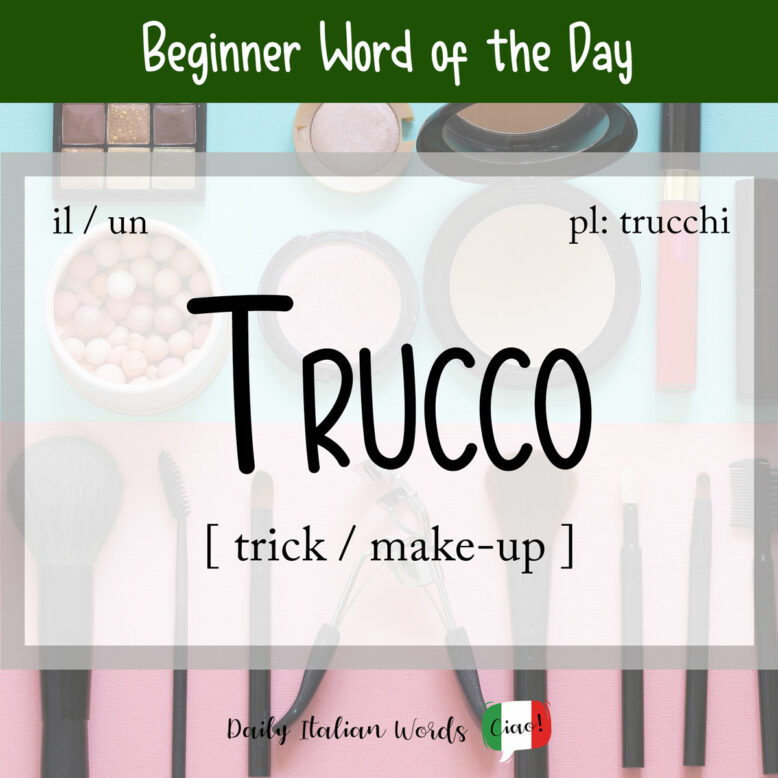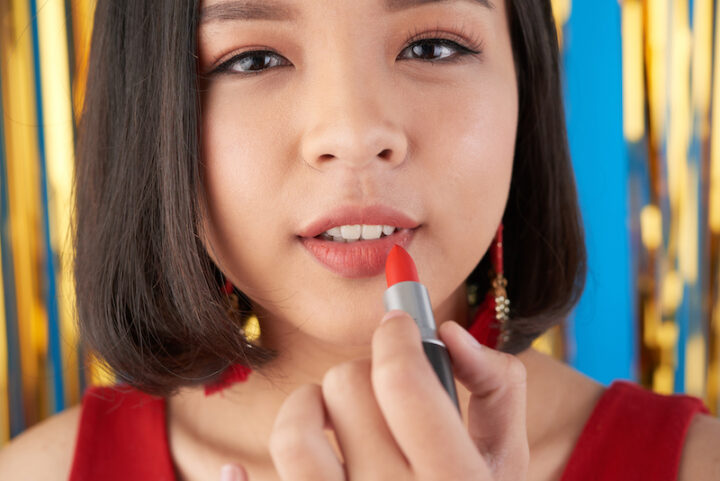The Italian word trucco (masculine, plural: trucchi) has different meanings. One of the first that comes to mind is make-up. It can be used in reference to cosmetics applied to the face in order to beautify a person’s appearance, as well as theatrical make-up used to alter a person’s face for live performances, film or television.

It derives directly from the verbs truccare (to put on make-up) and truccarsi (to put make-up on oneself). Although truccarsi is the most straightforward way of saying to put on make-up, it is also possible to use the synonymous expressions darsi il trucco or farsi il trucco.
Devo farmi il trucco prima di andare in onda.
I need to put on my make-up before going on air.
To remove one’s make-up translates in three different ways: struccarsi, togliersi il trucco or levarsi il trucco.
Anyone who enjoys putting on make-up will probably own at least a handful of the following cosmetics (cosmetici). It is interesting to note that Italian has imported foreign terms from English and French to describe certain products:
- ombretto = eye shadow
- mascara = mascara
- eyeliner = eyeliner
- fard = blush
- rossetto = lipstick
- fondotinta = foundation
- struccante = make-up remover

A person whose job is to apply cosmetics to performers or models is a truccatore (male make-up artist) or truccatrice (female make-up artist).
Two possible (albeit less common) synonyms for trucco are truccatura and maquillage, the latter coming from French.
Other meanings for “trucco”: trick and catch
If you look at various Italian dictionaries, you’ll see that make-up is not the first meaning listed for the word trucco.
This is because it is a popular term to refer to artifice or trickery such as that of a magician.
Mi insegni qualche trucco di magia?
Can you teach me some magic tricks?
You can use trucco to talk about the techniques one learns with years of experience doing a job. The expression i trucchi del mestiere, for example, means the tricks of the trade.
Trucco can also have a negative connotation when used to describe fraud or a scam. The noun truccatura, the adjective truccato/a and the verb truccare can also be used in this sense.
Conosco un trucco per non pagare le bollette.
I know a trick to not pay the bills.

A final translation is catch which refers to a hidden problem or a disadvantage in a situation that looks too good to be true.
È troppo bello per essere vero, dov’è il trucco?
It’s too good to be true, where’s the catch?
Heather Broster is a graduate with honours in linguistics from the University of Western Ontario. She is an aspiring polyglot, proficient in English and Italian, as well as Japanese, Welsh, and French to varying degrees of fluency. Originally from Toronto, Heather has resided in various countries, notably Italy for a period of six years. Her primary focus lies in the fields of language acquisition, education, and bilingual instruction.


